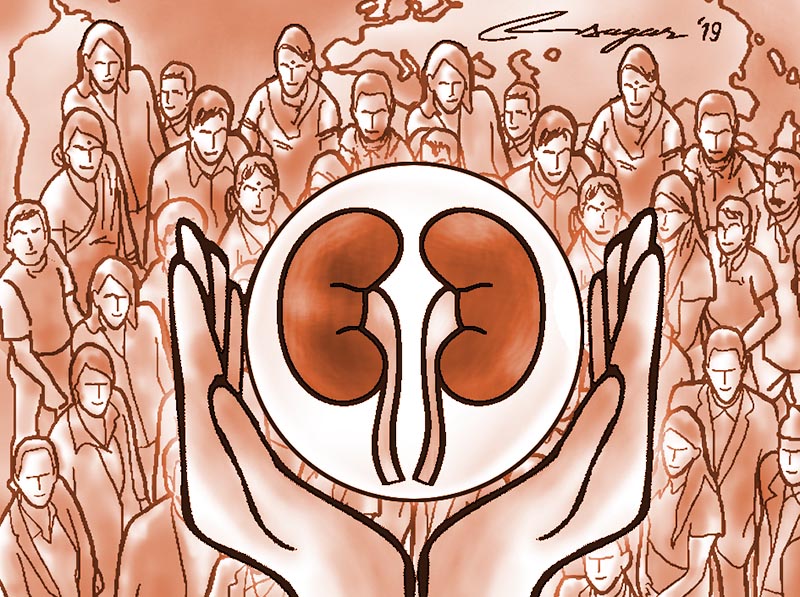Peritoneal dialysis more convenient for kidney patients: Doctors
Kathmandu, March 16
Thakur Prasad Kafle, 65, from Birtamod couldn’t do heavy work, but he is very happy that he doesn’t have to travel all the way to Kathmandu for dialysis.
Kafle visited Apollo Hospital, Delhi, for treatment of kidney failure. Doctors told him that there was no option left but to go for dialysis. “I spent Rs 2.4 million for dialysis at Apollo Hospital. Then, one of the doctors of the hospital advised me to go for continuous ambulatory peritoneal dialysis, which can be done at home also,” he said.
Peritoneal dialysis is a treatment for kidney failure that uses the lining of a patient’s abdomen, or belly, to filter blood inside the body. Healthcare providers call this lining peritoneum.
A few weeks before starting peritoneal dialysis, a surgeon places a soft tube, called a catheter, in the patient’s belly.
Talking to THT over phone, Kafle shared that he then underwent a surgery at Human Organ Transplant Centre, Bhaktapur, now named as Shahid Dharma Bhakta National Transplant Centre. “Now, I don’t have to visit hospital on a regular basis,” he said. Kafle now conducts dialysis at home without anyone’’s help.
In the same way, Daya Laxmi Shrestha, 33, from Sindhupalchowk, is also conducting CAPD. “Peritoneal dialysis has helped me live a normal life. For haemodialysis I had to visit hospital thrice a week and it would make me feel very weak,” she shared, adding that for CAPD one had to undergo a surgery.
Dr Kalpana Shrestha, Nephrologist at Shahid Dharma Bhakta National Transplant Centre, who had conducted the surgeries of Kafle and Shrestha, shared that renal failure patients could undergo dialysis on their own at home.
“Till now, I have conducted surgery of more than 80 kidney patients and it is very helpful and cost effective for the patients who have to travel a long distance for dialysis,” she said.
She also said that the government had been providing free dialysis service to all kidney patients. The cleansing fluid is also provided free of cost. “But sometimes our country faces shortage of fluid which makes it difficult for patients to get the service on time. If the government makes the fluid easily available, CAPD will be very effective for kidney patients in a country like ours,” she informed.






